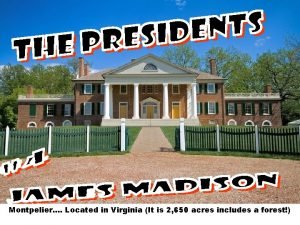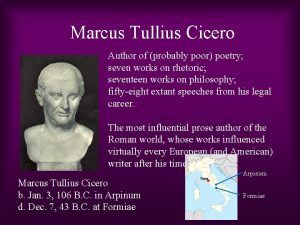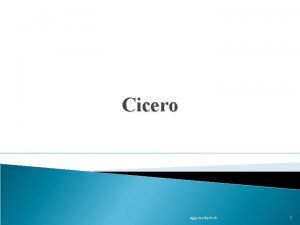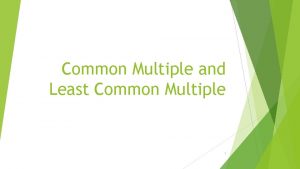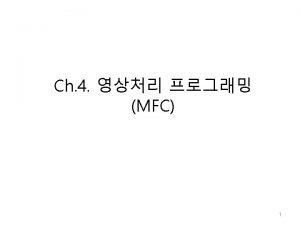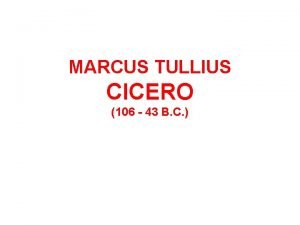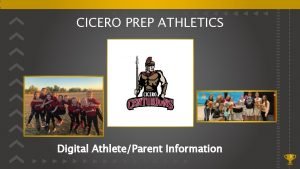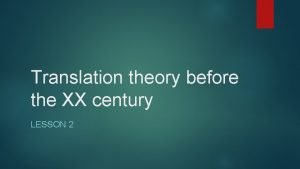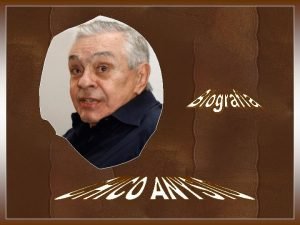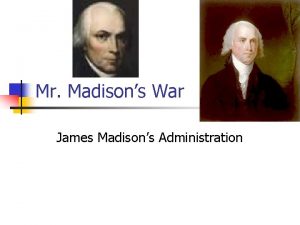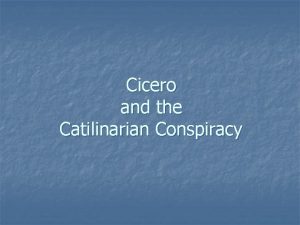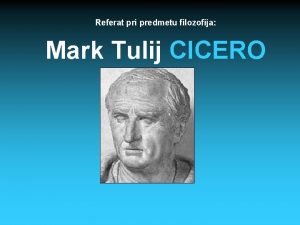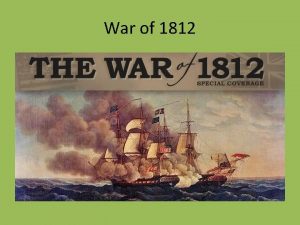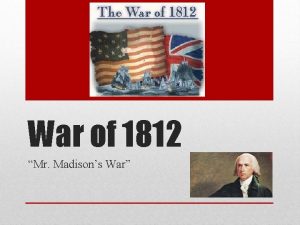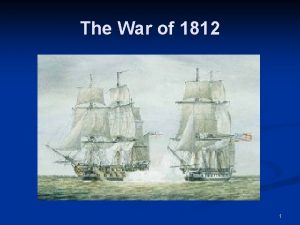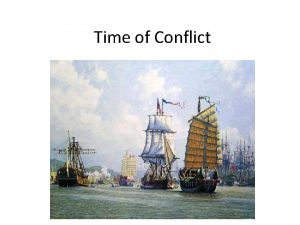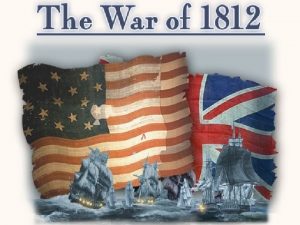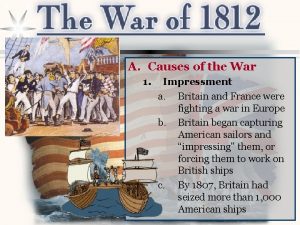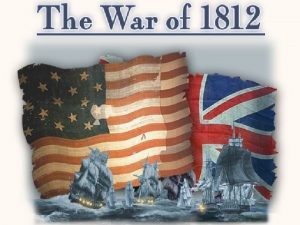Mr Madisons War CICERO 2008 Impressment In the















- Slides: 15

Mr. Madison’s War! CICERO © 2008

Impressment In the early part of the 19 th century, England found themselves in another war with France. Short of men and supplies they found an answer to their problem. 1. Seize any ships (US) going to France 2. 2. Take the cargo 3. Recapture deserters (off US ships) British impress, or kidnap, American sailors. This policy angered Americans and had some people call for war against the British. (Chesapeake vs. Leapard affair) CICERO © 2008

British Support of Indians • To slow US westward expansion, the British made alliances with Native tribes and supplied them with weapons. (Pay 4 Scalps) • Americans were enraged b/c GB is violating of the Treaty of Paris & Jay’s Treaty. • W. H. Harrison, Governor of Indiana, attempted to make peace but ended up fighting against the Natives (Battle of Tippecanoe!) • Tecumseh & the Indians formally with GB. CICERO © 2008

War Hawk’s Since the Revolutionary War, Americans had been interested in Canada. The new issues w/ BG renewed our desire to take the territory away from British. The “War Hawks” led the charge to declare war against GB and to invade Canada. (Clay & Calhoun) Other interest in Florida. CICERO © 2008

Madison Declares War June 1 st 1812 CICERO © 2008

Causes: 1. Britain- violates US neutrality by seizing US ships, goods, & sailors!!! (Impressment) 2. Britain- armed Indians and encouraged attacks on US Western settlers. 3. US- agreement with France (stop trade with GB) (Britain blockades US coast in retaliation) 4. Territory- US wants to expand !!! (Canada/GB & Florida/Spain) CICERO © 2008

War at Sea The British blockaded the American coast before and during the war. On August 19, 1815 the USS Constitution battled the HMS Guerriere off the New England coast. The the British fired on the Constitution the canon balls bounced off the Constitution, earning the nickname, “Old Ironsides. ” Eventually the Guerriere’s mast was USS Constitution vs. HMS Guerriere disabled, the crew was forced to strike its colors, and the captain was CICERO © 2008 forced to surrender.

Battle of Lake Erie September 10, 1813 English and American forces battled on Lake Erie. The battle of Put-in-Bay saw American Commander Oliver H. Perry led the US fleet, against Commander R. Barclay of the British. Perry took control of the battle, using heavy artillery to weaken the Royal Navy. (US suffered 80% casualties) Barclay was wounded in the battle. Perry led the Americans to victory despite having to switch ships. CICERO © 2008

Burning of the Capital! British General Ross led the troops that attacked Washington, D. C. . His orders were to destroy everything in the path up to the Capitol. Once they reached the Capital they set fire to the Capital Building, the Library of Congress, the Treasury Building , and the Executive Mansion. (Retaliation for burning of buildings in Canada). First Lady Dolley Madison barely escaped the fire because she was saving the portrait of George Washington. A rogue hurricane came through the area and put out the fires all of the building would have been completely destroyed. CICERO © 2008

Battle of Baltimore! September 13, 1814 The British army marched 5, 00 men from Washington, D. C. , toward Baltimore. The Battle of North Point pitted British Colonel A. Brooke against American forces. The US forces were able to halt their advance. At Fort Mc. Henry, Major George Armistead led Americans against the British Royal Navy on September 13, 1814. The United States held its ground, forcing the British fleet to withdraw. An American flag flew over the fort the next day, signaling victory for the United States, and becoming Francis Scott Key’s inspiration for The Star-Spangled Banner. CICERO © 2008

The Star-Spangled Banner F. S. Key was a young lawyer from Washington in 1814 when he found himself at the center of a raging battle. President Francis Scott Madison sent Key to arrange for the release Key of a doctor that British army had captured. Key met with British officers aboard the HMS Surprise; however, because Key had overheard the British battle plan, he was forced to remain on board until the battle was over. Key had a front-row seat to the British bombardment of Fort Mc. Henry and wrote a poem to describe what he had seen. The poem would be set to the British drinking tune of “To Anacreon in Heaven. ” Later the song would be renamed “The Star -Spangled Banner. ” In 1931 an act of Fort Mc. Henry Flag Congress made Key’s song the national CICERO © 2008 anthem of the United States.

The Hartford Convention! December 15, 1814 . CICERO © 2008

Treaty of Ghent December 24, 1814 The War of 1812 ended with the signing of a peace treaty in Ghent, Belgium, on December 24, 1814. Communications very slow at the time so the war raged for another two months before word spread to end the hostilities. The treaty restored conditions between Britain and the United States to what they were before the war (Status Quo Antebellum). The British promised to return all impressed sailors and captured slaves, and the Americans promised to respect Indian territory in presentday Ohio and Michigan. CICERO © 2008

Battle of New Orleans! Andrew Jackson hailed as a hero after the Battle of New Orleans. Pirates fought with Americans at New Orleans. On January 8, 1815, General Packenham led the British against Andrew Jackson’s American forces defending New Orleans. The British initiated an attack but the Americans were able to defend their position and inflict heavy casualties on the British. The British were forced to retreat. The battle was inconsequential because the War of 1812 had ended when the Treaty of Ghent was signed two weeks earlier. The result of this battle inspired many Americans to feel that the US was victorious in this war and ushered in a new period of nationalism. CICERO © 2008

Results of the War • British agreed to respect the borders of the United States and stay out of the Northwest Territory. • Americans became more self-reliant because they were forced to manufacture their own goods after stopped trade with Great Britain (before & during the war). • Americans gained nationalistic pride from their victories against the British (New National Heroes & Identity). • British defeated Napoleon Bonaparte, both countries resumed their friendship, and British-American trade recommenced. • Indian resistance in the Northwest Territory was crushed. • Era of Good Feelings (Federalists fade after Hartford Conv. ) CICERO © 2008
 Impressment
Impressment 2008 2008
2008 2008 Cicero poems
Cicero poems Cicero gif
Cicero gif Cicero and seneca
Cicero and seneca Lazy frog cicero
Lazy frog cicero Single document interface
Single document interface 106 - 43
106 - 43 Cicero catilinam denuntiat
Cicero catilinam denuntiat Cicero prep athletics
Cicero prep athletics Etienne dolet 5 principles of translation
Etienne dolet 5 principles of translation Francisco anysio de oliveira paula netos
Francisco anysio de oliveira paula netos Francesca cicero
Francesca cicero Cicero bibliotekssystem download
Cicero bibliotekssystem download Materi konsep seni kelas 10
Materi konsep seni kelas 10 Five classical canons of rhetoric
Five classical canons of rhetoric
